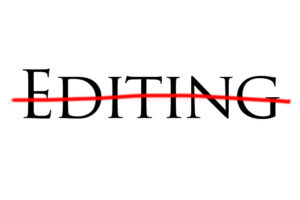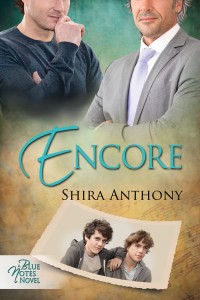 There’s nothing quite as exciting as the lead up to the release of a new book. With each round of edits, with each email I exchange with the Dreamspinner Press art department about the cover, my anticipation grows. Writers often call their books their “children,” so what better a metaphor for the lead up to the release of a new book than pregnancy. I’ve been through two of those, and I can tell you that in addition to the anticipation, there’s also plenty of discomfort and worry. Same with the release of a new book. So as the August 8th release date for Dissonance approaches and I await the third round of edits, I thought I’d share a bit of the writing process seen through this writer’s eyes.
There’s nothing quite as exciting as the lead up to the release of a new book. With each round of edits, with each email I exchange with the Dreamspinner Press art department about the cover, my anticipation grows. Writers often call their books their “children,” so what better a metaphor for the lead up to the release of a new book than pregnancy. I’ve been through two of those, and I can tell you that in addition to the anticipation, there’s also plenty of discomfort and worry. Same with the release of a new book. So as the August 8th release date for Dissonance approaches and I await the third round of edits, I thought I’d share a bit of the writing process seen through this writer’s eyes.
There’s not much I love more than to hear a reader’s excitement when I post that I’ve just submitted a new book to my publisher, or that I’m working on edits for an upcoming release. Often the response is “Why is is taking so long???” Sometimes, honestly, it does feel like forever from the inception of a book until I see it in print. In truth, though, it’s usually less than a year from the time I write the first word until I hold that paperback author copy in my greedy little hands! The editing process itself takes about 4 months from first edits to release.
my publisher, or that I’m working on edits for an upcoming release. Often the response is “Why is is taking so long???” Sometimes, honestly, it does feel like forever from the inception of a book until I see it in print. In truth, though, it’s usually less than a year from the time I write the first word until I hold that paperback author copy in my greedy little hands! The editing process itself takes about 4 months from first edits to release.
I am particularly fortunate to have a great executive editor I work with on my Dreamspinner Press books. It’s one of the reasons I haven’t looked any further than Dreamspinner when shopping my books around (there are many other reasons I continue to choose Dreamspinner, of course, but this is one of the biggest for me). The executive editor manages teams of editors who read and edit manuscripts before publication. What does that mean for me, the writer?
Round 1. First, the main/supervising editor sends me a marked up manuscript. I call this the “ouch!” stage. Starting out, I remember looking at my manuscripts with all the markups and wincing. I’ve since learned that all those tracked changes and comments in the margin are good for me!  We’re talking basic copy editing, but much, much more. Then there’s dreaded “content editing” I’ve come to depend upon (and even enjoy). That’s the “I didn’t understand why [insert character name here] did this.” Or the, “I think you’re missing a connection here in this character’s development.” Or the, “This makes no sense at all!” Let me give you an example.
We’re talking basic copy editing, but much, much more. Then there’s dreaded “content editing” I’ve come to depend upon (and even enjoy). That’s the “I didn’t understand why [insert character name here] did this.” Or the, “I think you’re missing a connection here in this character’s development.” Or the, “This makes no sense at all!” Let me give you an example.
The Melody Thief is one of my strongest books. At least I think so. But I’m convinced it’s strong because it had great editing. It was also one of the first books I asked for content edits on. My first round edits came with a suggestion: show Cary Redding becoming less of a boyfriend living with Antonio and his young son, and more of a father. Not spoiling much here to say  that Cary was nowhere near father material at the beginning of the story, but by the end he truly becomes a father to Massimo. My editor’s suggestion? A brand new chapter showing how Cary finally steps up to the plate. And seven year-old Massi isn’t exactly in cute/sweet mode. That chapter, written during edits, became my favorite of the book. Massi has a hissy fit, Cary puts his foot down, and Massi is not a happy camper. But at the end of the chapter, Massi and Cary move into father/son territory. That’s not the first (or last) time I’ve added significantly to a book during edits, but it’s one of the best examples of how helpful an editor’s suggestions were.
that Cary was nowhere near father material at the beginning of the story, but by the end he truly becomes a father to Massimo. My editor’s suggestion? A brand new chapter showing how Cary finally steps up to the plate. And seven year-old Massi isn’t exactly in cute/sweet mode. That chapter, written during edits, became my favorite of the book. Massi has a hissy fit, Cary puts his foot down, and Massi is not a happy camper. But at the end of the chapter, Massi and Cary move into father/son territory. That’s not the first (or last) time I’ve added significantly to a book during edits, but it’s one of the best examples of how helpful an editor’s suggestions were.
Round 2. Round 3. After the first round of edits, we do a little back and forth dance at least twice more. Each round of edits is done by a new editor, supervised by the main editor. I respond to comments and questions, I make changes, I add new text as needed. Back and forth and back and forth for three rounds, then I get the “galley.”
Galley Proof. For those who may not know, the galley is a mock-up of what the actual book will look like including photos, fancy chapter headings, and even front and back matter (glossaries, dedications, that sort of thing). At this stage, it’s all about catching the obvious typos that we’ve missed and making sure the formatting looks all right. No changes made in the galley itself, I write my changes in a separate document (I use a chart with page numbers, ![BlueNotes[2ndEd]LG](https://lovebytesreviews.com/wp-content/uploads/2014/06/BlueNotes2ndEdLG-200x300.jpg) original text, and suggested corrected text). At this point, it’s out of my hands. I don’t see the book again until it’s published, although the editing staff do at least one more check after that. I personally review my galley proofs by reading the book on screen and listening to it on my Kindle at the same time (I can upload Word docs to my Kindle, which has a text-to-speech feature). As a former musician, I find I catch typos better if I listen and read, rather than just read.
original text, and suggested corrected text). At this point, it’s out of my hands. I don’t see the book again until it’s published, although the editing staff do at least one more check after that. I personally review my galley proofs by reading the book on screen and listening to it on my Kindle at the same time (I can upload Word docs to my Kindle, which has a text-to-speech feature). As a former musician, I find I catch typos better if I listen and read, rather than just read.
A good editor can help a willing writer improve his/her style of writing. I say “willing,” because if a writer is so convinced s/he doesn’t need improvement, forget about it! I’m convinced my writing style has changed for the better with my editors’ help. Style is not just about comma placement or sentence structure, either. It’s about finding a personal “voice” in writing that suits the writer. I prefer clean, clear, crisp writing. Active voice, simple or no dialogue tags so they don’t get in the way of the conversations between characters. I’ve refined my style with the help of my editors. Pick up a Shira Anthony book written in the last three+ years, and you’ll hear my voice, whether it’s a story about musicians in Italy or mermen in an alternate universe fantasy. It sounds like Shira.
Lest you think editing is all roses, think again. Editing takes hours of work, both on the editors’ parts, as well as mine. Writing entirely new chapters while you’re trying to get your latest manuscript out the door (Dissonance and Blood and Rain, *cough, cough*)? Hair tearing-out time! Rewriting an entire chapter from a different point of view  because your editor (and you, begrudgingly, agree) suggests it will help balance the different points of view in the book? Time to bang your head against the wall. Readers who say they love how easy to read your books are? Yep. Makes it worth all the angst, thinning hair, and head-dents. Truly.
because your editor (and you, begrudgingly, agree) suggests it will help balance the different points of view in the book? Time to bang your head against the wall. Readers who say they love how easy to read your books are? Yep. Makes it worth all the angst, thinning hair, and head-dents. Truly.
Want to take a peek at my latest book in edits? Here’s a passage from Dissonance for you. Not the final version, I’m guessing, but getting close now. Is it better than the original version I sent to Dreamspinner in March? Damn straight! Hope you enjoy it! -Shira
******
Blurb: British lord Cameron Sherrington has hit rock bottom. The love of his life, opera sensation Aiden Lind, is marrying another man, and Cam knows it’s his own fault for pushing Aiden away. Then someone tries to set him up and take away his family business. Facing arrest by US authorities on charges of money laundering and with no money to return to London, Cam decides to run. But with no money and no place to stay, it’s not exactly the Hollywood thriller he’d imagined.
When Cam hears Galen Rusk play in a lonely subway station, he’s intrigued. But his assumptions about Galen are all wrong, and their unusual relationship isn’t exactly what Cam bargained for. Add to that the nightmares that dog him nightly, and Cam’s world is shaken to its core. Cam figures he had it coming to him, that it’s all penance due on a life lived without honesty. He just never figured he might not be able to survive it.
Note: Blue Notes Series novels are standalone stories, and can be read in any order.
Excerpt from Chapter 4:
The setup? Cam has just learned that the love of his life, Aiden Lind, the man he cheated on and lost, is marrying another man. Even better? It’s Cam’s 30th birthday.
He walked from the Lexington Avenue train toward to the S train platform. The achingly mournful sound of a trumpet echoed off the dirty tile walls. He hadn’t really noticed them before. The intricate mosaic artwork had probably taken weeks to complete. Decades before, it had probably been stunning, but now it was covered in a film of grayish-black soot and some of the tiles were missing.
How fitting. He looked around for the source of the music, noting the powerful smell of urine. Away from the turnstiles, a mound of blankets and a refuse-filled shopping cart occupied the far corner of the station. He guessed there was a human being under there, although he was hardly going to look. Beyond the automatic ticketing machines, he could just make out the form of a man holding a trumpet. The same man he’d seen playing at lunch. Maybe he lived in the subway. Cam had heard stories of actors and musicians unable to get work in New York living on the street.
“Ain’t no sunshine when she’s gone….”
Cam walked across the empty space between the train platforms, his feet making soft tapping sounds against the concrete. He paused for a moment to watch the trumpet player standing with his back to the wall. He stared into whatever space musicians liked to stare into—that ethereal place they went when they were so focused on the music that the world around them disappeared. A dusty blond curl fell from the shaggy mop of hair onto the trumpeter’s face as he finished another phrase. “… and she’s always gone too long anytime she goes away.”
Cam drew a long breath. It was perfect. The angst of it all. The music. The echo of his steps. The blast of cool air as he neared the train tunnels. Fucking perfect.
The musician noticed him standing there. The man’s eyes were a beautiful hazel, almost green. Why hadn’t he noticed before?
What do you care? The man’s an unemployed musician.
The guy looked at him and his eyes widened almost imperceptibly, as they had the last time Cam had seen him. Did he recognize Cam? God knew there were enough articles written about him. Esquire, Elle, Cigars Magazine, blah, blah, blah. Glamor’s “Most Eligible Bachelor” from 2008. As if!
The trumpet player finished the song, then stopped for a moment and rested the trumpet against his hip. His lips were swollen and pink from playing. For a split second, Cam imagined tasting them. Then he noticed the torn jeans and white T-shirt with a faded Señor Frog’s logo and the words “I got wasted in Cancun” written below it.
Oh, for God’s sake, Cameron! He’s a loser with a capital L!
Well, that made two of them, didn’t it? Even if the guy could play pretty damn well—very well, judging by the little Cam had heard—they were both in a stinking, empty subway station on a Friday night at midnight. Poor sod.
“Another request?” A smile danced on the man’s kissable lips.
Cam shrugged. “Whatever you want to play,” he said, not caring how pathetic he sounded.
The trumpeter put his instrument to his lips and began. “Blue moon, you saw me standing alone, without a dream in my heart….”
Normally he’d have listened for a moment, left a few dollars, and headed home. But something about the man and the music held him entranced. He felt an odd, otherworldly connection. Was it the morbid, surreal feel to the evening, an evening he’d known would eventually come even though he’d tried to convince himself a thousand times over he wouldn’t care when it did? Or was it the momentary feeling that he’d connected with someone, as pathetic as he was? He thought of Aiden and how he’d barely had enough for his next meal when they’d met at a party in London.
“New in town?” he’d asked as he’d taken his full measure of Aiden.
“That obvious?” Aiden’s southern twang had been more pronounced back then. Cam remembered thinking how he’d like to wake up to that resonant voice every morning. And when, only a month later, he’d asked Aiden to share his London flat, he’d felt good to know that Aiden wanted him. He’d felt that flutter in his belly. He’d felt wanted. It had felt so fucking good.
The song ended. Cam hesitated a moment longer, then reached into his jacket and pulled out his billfold. He’d just used his last twenty for the fare card. He slipped the only remaining bill—a hundred—out of his wallet and walked to the open trumpet case. A few singles, some quarters, and several pennies lay strewn over the faded purple velvet of the interior. He dropped the bill on top, then walked to the turnstiles, slid his fare card through the slot, and entered as the machine beeped. He didn’t need to see the musician’s reaction to know a hundred was more money than he’d ever seen. He knew the type. Too lazy to bother working a regular job, maybe even addicted. Why else would someone with obvious talent to be in a place like this? Surely there was work to be had in an orchestra or even playing the Manhattan Sunday brunch scene.
The last thing he heard when he walked onto the Uptown No. 3 train was the opening phrase of “Stairway to Heaven.”
Happy fucking birthday to me.
******
About Shira:
Shira Anthony was a professional opera singer in her last incarnation, performing roles in such operas as Tosca, Pagliacci, and La Traviata, among others. She’s given up TV for evenings spent with her laptop, and she never goes anywhere without a pile of unread M/M romance on her Kindle.
Shira is married with two children and two insane dogs, and when she’s not writing, she is usually in a courtroom trying to make the world safer for children. When she’s not working, she can be found aboard a 35’ catamaran at the Carolina coast with her favorite sexy captain at the wheel.
Shira’s Blue Notes Series of classical music themed gay romances was named one of Scattered Thoughts and Rogue Word’s “Best Series of 2012,” and The Melody Thief was named one of the “Best Novels in a Series of 2012.” The Melody Thief also received an honorable mention, “One Perfect Score” at the 2012 Rainbow Awards.
hira can be found on:
Facebook: https://www.facebook.com/shira.anthony
Goodreads: http://www.goodreads.com/author/show/4641776.Shira_Anthony
Twitter: @WriterShira
Website: http://www.shiraanthony.com
E-mail: shiraanthony@hotmail.com

![BlueNotesSeries_FBbanner_DSP[1]](https://lovebytesreviews.com/wp-content/uploads/2014/06/BlueNotesSeries_FBbanner_DSP1.jpg)

Very informative post – I’ve always been really pleased with my Dreamspinner purchases – I think they are just about the best when it comes to the quality of their product with respect to editing. I have not read your Blue Notes series but have added to my wishlist – I love music books – not sure how I missed these
Thanks Lisa! I agree with you – Dreamspinner’s editors rock. They really do make me look good. I hope you enjoy “Blue Notes!” Happy reading!
Great post! Before my first book, I had no idea how much (or how important) the editing process would be. (And you *know* I’m looking forward to Cam’s story!)